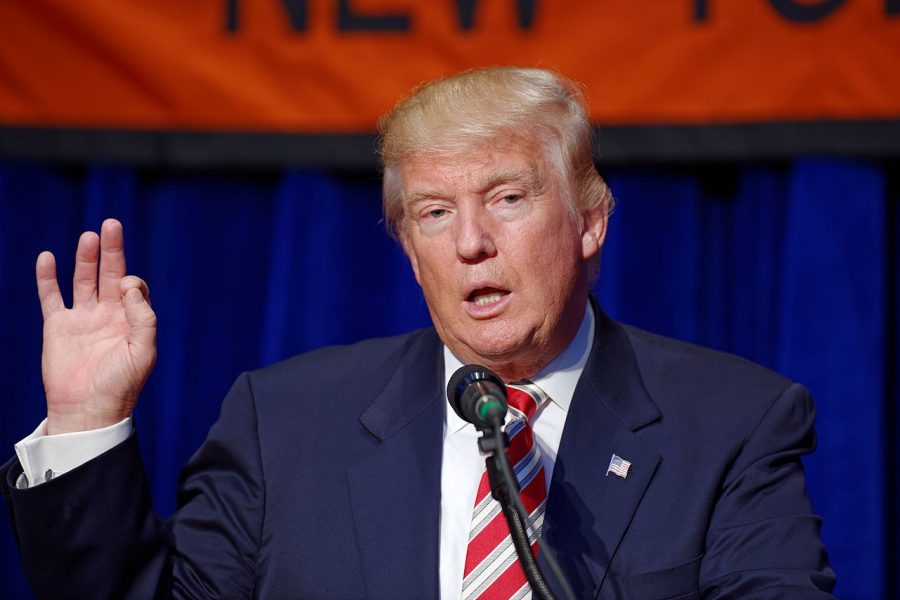Opinion: Impeachment Ahead?
After the Mueller report, support for impeachment grows
Following the release of the redacted Mueller report, Democratic lawmakers have started to seriously consider impeaching the President ahead of the 2020 election. Despite clearing the President and his campaign of “collusion,” the Special Counsel detailed 10 instances of obstruction of justice by President Trump, including his attempts to fire Mueller himself. Obstruction of justice is a criminal offense, and many legal analysts agree that the President likely would have been indicted had he not been President. Luckily for the President, he is protected by current Department of Justice regulations which prohibit the indictment of a sitting President.
In this case, the responsibility for determining the President’s guilt or innocence likely falls to the Democratic-controlled House of Representatives. Although Speaker Pelosi has pledged to continue investigating the President, other members of her caucus and party are pushing her to consider bringing the President up on charges. Several of the top 2020 Democratic contenders for President, including Kamala Harris and Elizabeth Warren, have called for the President’s removal as well, although much of the field has refused to give a yes-or-no answer.
The Speaker has hesitated to start impeachment proceedings, believing that impeachment would be both politically harmful and ineffective. There’s plenty of reason to think this might be the case. In 1998, Republicans faced disappointing midterm results after impeaching but failing to remove President Clinton over perjury and obstruction of justice. There’s also no evidence to suggest that any Republicans in the Senate would be willing to support the removal of the President from office, much less the 20 Republican Senators required. Democrats have repeatedly insisted they would pursue impeachment only with bipartisan support.
Other Democrats fear that impeachment might represent a distraction from the issues which are most important to voters, like healthcare. In 2016, the Clinton campaign focused heavily on President Trump’s personal flaws. Exit polls revealed that large majorities believed Trump was untrustworthy. In the end, the electorate demonstrated that concerns over character were not enough to sink the Trump campaign. It’s possible voters might treat the Russia investigation similarly.
Still, if the Democrats decline to pursue impeachment, they risk alienating their base and appearing hypocritical. Democrats have (rightly, in my opinion) focused on the investigations into Russian collusion and interference during the President’s tenure. If they decide now not to impeach the President because of political inconvenience, they’ll signal to voters that the Russia investigation is not as important as they have said it is over the past two years. The left-wing Democrats which represent a plurality of the party will undoubtedly be angered at this perceived political cowardice. This could mean lower turnout in 2020, potentially delivering the President a second term.
Choosing to impeach the President now or leaving it up to voters in 2020 is a difficult decision for Democratic leaders to make. Each path could lead to electoral disaster. Democrats continue to wait for incontrovertible evidence that the President committed a crime, but the smoking gun they seek may never fully materialize. At some point, Democrats may have to decide based on the evidence in front of them: impeachment or not?
My take:
We still don’t know exactly what happened in 2016. We know Russia intervened. We know several members of the Russian government met with Trump campaign officials. We know the President’s campaign manager gave an operative linked to Russian intelligence private polling data. Almost nothing has been revealed about the extensive counterintelligence operations which continue to be conducted. We cannot be certain that the Trump campaign didn’t give help in one way or another to the Russian government–we haven’t seen the unredacted Mueller report. We are unsure if the President received financial payments or generous loans from Russian oligarchs–we haven’t seen his tax returns. We don’t know if the President is being or has been blackmailed by Russian officials. There are still many unanswered questions, even two years later.
During his tenure in office, the President has opposed placing sanctions on the Russian government, worked to lift sanctions on Russian oligarchs, and denied that the Russians intervened in the election whatsoever. If the President is not compromised, why has he worked to fulfill Vladimir Putin’s wishes? If the President is influenced by Russia, allowing him to remain in office would theoretically allow the President, unwittingly or otherwise, to continue aiding the Russian government. If he’s not influenced in any way, then the President deserves a complete exoneration ahead of the election. Whatever the case, the Democrats and the continuing investigations need to arrive at a final decision soon. The investigators should have whatever money and manpower they need at their disposal, because the President’s continued tenure represents either the greatest betrayal in the history of the nation, or a terrible case of character assassination. All involved should act with urgency to answer these critical questions as soon as possible. The survival of our nation and our democracy depends on it.








